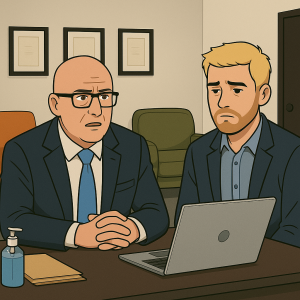1. Victim and Witness Rights
- Alaska State Troopers – Crime Victims
Provides information on victim rights, compensation, and available services after a reported crime. - Alaska Attorney General’s Office – Victim Rights
Offers legal rights summaries and victim advocacy programs.
2. Free and Low-Cost Legal Aid Programs
- Alaska Legal Services Corporation
Offers free civil legal assistance to low-income individuals, including for protection orders, harassment, and stalking cases. - Legal Aid of Alaska
Helps with restraining orders, defamation cases, and other civil matters across the state.
3. Relevant Laws
- Stalking: Alaska Stat. § 11.41.270
What it means: Involves repeated conduct—including digital contact—that causes fear for a person’s safety or the safety of others. Includes surveillance, following, or persistent unwanted communication. - Harassment: Alaska Stat. § 11.61.120
What it means: Covers threats, intrusive communications, or offensive behavior that seriously annoys or harms another. Includes electronic and telephonic harassment. - Bullying: No specific adult criminal statute. Addressed through school policies and juvenile procedures.
What it means: Bullying in Alaska is handled primarily through local school district rules. Includes cyberbullying, verbal abuse, and peer intimidation. Enforcement varies by district. - Defamation: Civil tort, not criminal. Governed by Alaska common law and civil courts.
What it means: Individuals may sue for libel (written) or slander (spoken) if false statements cause reputational harm. Includes digital defamation. Alaska does not have a criminal defamation statute.
4. Reporting and Hotlines
- Dial 911 for emergencies or immediate threats.
- Non-emergency reports can be made to local police or Alaska State Troopers.
- Alaska Network on Domestic Violence and Sexual Assault (ANDVSA)
Connects survivors to shelters, legal help, and statewide advocacy programs. - Statewide Domestic Violence Hotline: 1-800-478-8999
Available 24/7 for confidential support and safety planning.
5. Support Organizations
- Alaska Network on Domestic Violence and Sexual Assault
Statewide coalition supporting shelters, legal advocacy, and survivor-centered resources. - Women In Harm’s Way
Provides trauma-informed support and advocacy services, particularly in Anchorage and surrounding areas.
6. Civil Remedies and Protection Orders
Victims in Alaska may request a protective order from the court if they are being stalked, harassed, or threatened. Orders may restrict contact and set boundaries for safety. Forms are available online and through courts. Legal aid organizations can help file and represent victims.
Important Note on Jurisdiction: If the individual you are seeking a restraining order against lives in a different state, your local court may not have jurisdiction to enforce that order. In most cases, you must file for protection in the state where that individual resides or where the conduct occurred. This applies even in situations involving online harassment, defamation, or stalking. Contact legal aid services in both your state and the other person’s state for guidance.
7. Youth and School Resources
- Alaska Department of Education – Safe and Supportive Schools
Offers anti-bullying guidelines, student safety strategies, and district-level complaint processes.
8. Court Forms and Filing Help
- Alaska Court System – Forms Index
Includes protection order forms and instructions for harassment and stalking-related cases.
9. Online Safety and Privacy Tools
- NNEDV Tech Safety Toolkit
Offers resources for protecting personal information and responding to online abuse or digital stalking.
Disclaimer: This information is provided for educational purposes only and does not constitute legal advice.




